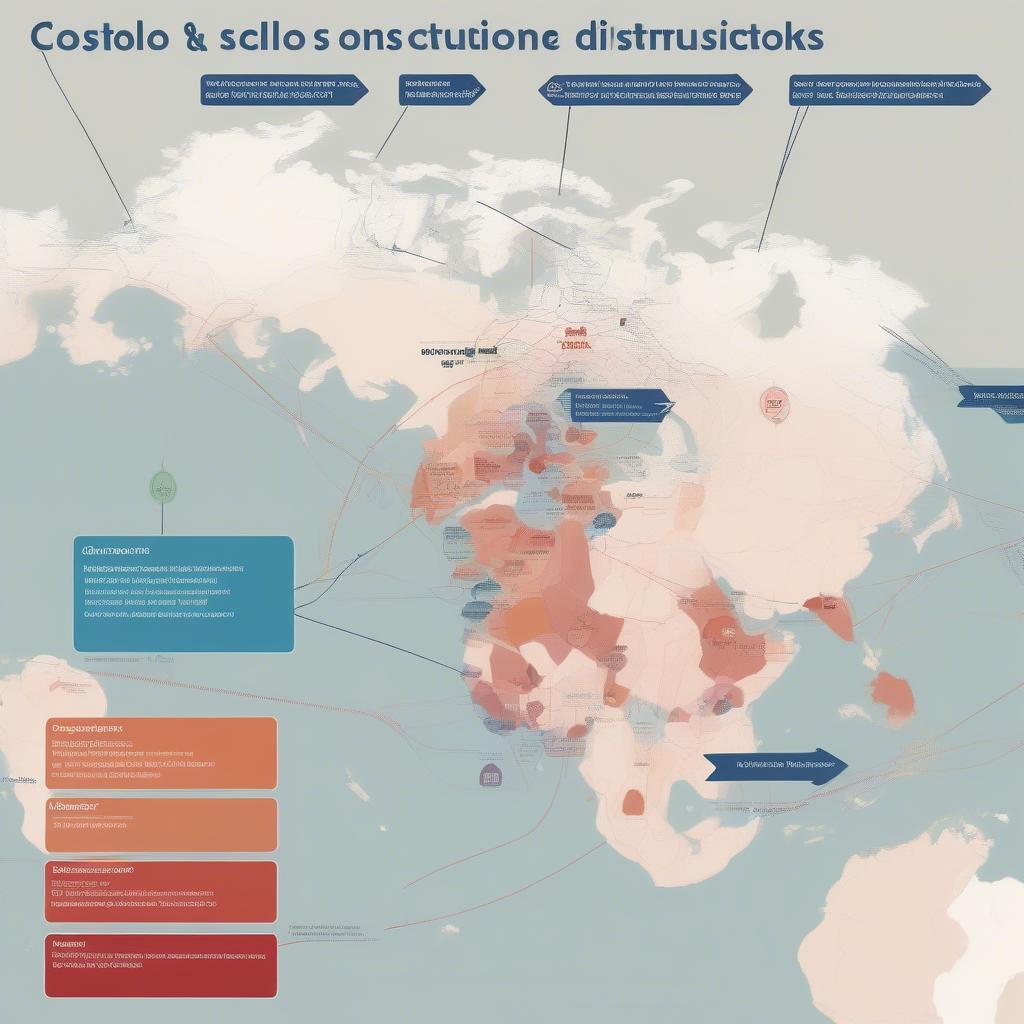
Costco, the warehouse club giant, thrives in a dynamic global landscape by skillfully navigating a complex web of political and economic factors. Understanding how these forces impact Costco’s operations is crucial for investors, analysts, and business enthusiasts alike. This PESTEL analysis delves into the political and economic pillars affecting Costco, providing valuable insights into its resilience and strategic adaptability.
Table Content:
- Navigating Trade Wars and Protectionist Policies
- How Political Stability Impacts Costco’s Global Operations
- Economic Factors: Riding the Waves of Prosperity and Recession
- The Impact of Economic Downturns on Consumer Behavior
- Inflation and its Effect on Costco’s Pricing Strategy
- The Power of the Membership Model in Economic Uncertainty
- Navigating Currency Fluctuations in a Globalized Market
- Conclusion
Political Landscape: A Balancing Act
Costco’s operations span numerous countries, each with its unique political climate. Trade policies, regulations, and political stability significantly influence the company’s ability to import goods, manage supply chains, and maintain consistent pricing.
Navigating Trade Wars and Protectionist Policies
Costco’s reliance on global sourcing exposes it to the risks of trade wars and protectionist measures. Tariffs and trade restrictions can increase the cost of imported goods, potentially impacting profitability. For instance, the recent US-China trade tensions posed challenges to Costco’s sourcing strategies. The company has demonstrated agility by diversifying its supplier base and adjusting its pricing strategies to mitigate these risks.
How Political Stability Impacts Costco’s Global Operations
Political instability in key markets can disrupt Costco’s operations, impacting supply chains and consumer confidence. The company carefully monitors geopolitical risks and adapts its strategies accordingly. For example, Costco’s presence in regions experiencing political unrest might necessitate adjustments to security protocols, logistics, and even temporary store closures.
 Costco's Global Supply Chain Map
Costco's Global Supply Chain Map
Economic Factors: Riding the Waves of Prosperity and Recession
Economic conditions, both globally and locally, exert a profound influence on Costco’s performance. Consumer spending patterns, inflation, interest rates, and economic growth directly impact membership renewals and sales volumes.
The Impact of Economic Downturns on Consumer Behavior
During economic downturns, consumers become more price-sensitive, seeking value and essential goods. This trend often benefits Costco, as its bulk discounts and focus on everyday necessities attract budget-conscious shoppers. The company’s membership model provides a recurring revenue stream, offering stability during economic fluctuations. However, prolonged recessions can still impact membership renewal rates and overall spending.
Inflation and its Effect on Costco’s Pricing Strategy
Inflationary pressures pose a significant challenge to Costco, forcing the company to balance its commitment to low prices with the need to maintain profitability. Rising input costs, including transportation and labor, can squeeze margins. Costco strategically uses its buying power to negotiate favorable prices with suppliers and often absorbs some cost increases to retain its price advantage.
 Costco Warehouse Shoppers During Inflation
Costco Warehouse Shoppers During Inflation
The Power of the Membership Model in Economic Uncertainty
Costco’s membership model provides a unique buffer against economic volatility. The annual membership fees generate a consistent revenue stream, allowing the company to invest in its operations and maintain competitive pricing. Furthermore, the membership structure fosters customer loyalty, creating a dedicated customer base that relies on Costco for essential goods and services.
Navigating Currency Fluctuations in a Globalized Market
Costco’s global presence exposes it to currency exchange rate fluctuations. Variations in exchange rates can impact the cost of imported goods and the profitability of international operations. The company employs hedging strategies and financial instruments to mitigate the risks associated with currency fluctuations.
 Costco Gas Station Fuel Prices
Costco Gas Station Fuel Prices
Conclusion
Costco’s success hinges on its ability to effectively navigate the ever-changing political and economic landscape. By strategically adapting to trade policies, mitigating geopolitical risks, and responding to economic fluctuations, Costco continues to thrive. The company’s membership model, combined with its focus on value and operational efficiency, provides a strong foundation for sustained growth in the face of ongoing challenges. Understanding these political and economic dynamics is essential for comprehending Costco’s resilience and future prospects in the global retail arena.
